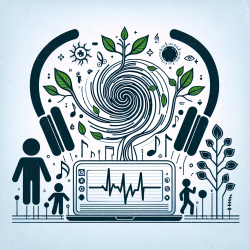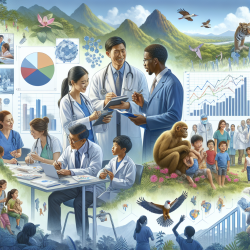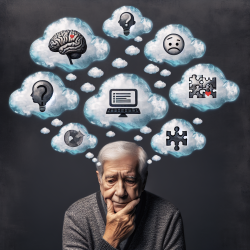Introduction
The devastating impact of Hurricane María on Puerto Rico in 2017 was a stark reminder of the complex interplay between ecological disasters and human experiences. As professionals dedicated to improving child outcomes through online therapy, understanding these dynamics is crucial. The research article titled “Y no quedó nada, nada de la casa, todo salió volando” provides a critical medical ecological perspective on the lived experiences during this disaster, offering valuable insights for practitioners.
Understanding the Critical Medical Ecological Framework
The study utilized the Critical Medical Ecological (CME) framework to assess the lived experiences of Puerto Ricans during and after Hurricane María. This framework considers the interaction of sociocultural, biological, and abiotic factors across different community levels. For speech-language pathologists and online therapy providers, this approach highlights the importance of considering environmental and social contexts when planning interventions.
Key Findings and Their Implications
The research identified distinct phases in the hurricane experience—before, during, and after—and noted that each phase had unique challenges and stressors. For instance, during the hurricane, individual-level experiences were dominated by fear and anxiety, while post-hurricane, community-level issues like the collapse of basic services became prominent.
- Pre-Hurricane: Preparation was uneven, with many underestimating the hurricane's potential impact. This highlights the need for better preparedness education and resources, which can be integrated into therapy sessions to build resilience.
- During the Hurricane: The immediate response was personal and fear-driven. Therapy can incorporate strategies to manage anxiety and stress, using data-driven approaches to tailor interventions to individual needs.
- Post-Hurricane: The collapse of services and community structures led to ongoing stress and health issues. Online therapy can provide continuity of care and support community rebuilding efforts by addressing mental health and communication needs.
Encouraging Further Research and Application
For practitioners, the study underscores the importance of understanding the broader ecological context in which clients live. This understanding can inform more effective therapy strategies that are sensitive to the environmental and social factors affecting clients. Encouraging further research into how these factors influence therapy outcomes can lead to more robust, data-driven practices.
Conclusion
By integrating the insights from the CME framework into online therapy practices, practitioners can enhance their ability to support children and communities affected by ecological disasters. This approach not only improves therapy outcomes but also contributes to community resilience and recovery.
To read the original research paper, please follow this link: “Y no quedó nada, nada de la casa, todo salió volando” (And there was nothing left, nothing of the house, everything flew away): a critical medical ecological perspective on the lived experience of hurricane María in Puerto Rico.










